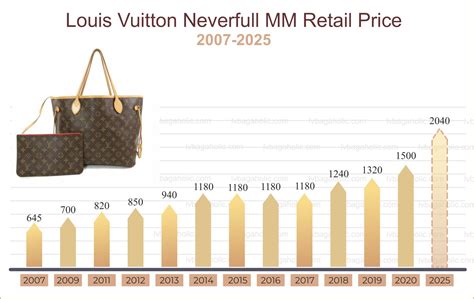luxury giants louis vuitton are big | louis vuitton value luxury giants louis vuitton are big LVMH and Kering’s primary battleground is the market for personal luxury goods, worth €281 billion (about $311 billion at current exchange rates) in 2019, according to Bain & Company. A back-of-the-envelope calculation finds that about 40 percent of the market last year was controlled by five companies — LVMH, Kering, Richemont, Hermès and Chanel.
31 Citations. 22 Altmetric. Metrics. Cardiac regeneration involves the generation of new cardiomyocytes from cycling cardiomyocytes. Understanding cell-cycle activity of pre-existing.
0 · who owns louis vuitton
1 · louis vuitton value
2 · louis vuitton top 100
3 · louis vuitton ranking
4 · louis vuitton luxury brands
5 · louis vuitton luxury
6 · louis vuitton brand rankings
7 · louis vuitton brand
This has a collage view with the video in it.
The acquisitions are compelling evidence that Vuitton, the star of the sprawling LVMH Moët Hennessy Louis Vuitton luxury conglomerate founded by Bernard Arnault, is .
Major luxury conglomerates saw growth in revenue as well as an increase in storefronts in 2023, JLL reports. French conglomerate LVMH— whose brands include Louis Vuitton, Dior, Fendi, Tiffany . The acquisitions are compelling evidence that Vuitton, the star of the sprawling LVMH Moët Hennessy Louis Vuitton luxury conglomerate founded by Bernard Arnault, is polishing its high.
Louis Vuitton maintains its stronghold as the leading global luxury brand, achieving a 4% rise in brand value to reach an impressive 9.8 billion. This reaffirms Louis Vuitton’s enduring global appeal and market dominance. Following closely, Hermès secures second place with a brand value of .676 billion, benefiting from its exclusive .June 14, 2023 – Louis Vuitton remains the world’s most valuable luxury brand for the 18th consecutive year. The French giant has held this position since the Kantar BrandZ global rankings first launched, the only brand to do so in any sector.
LVMH and Kering’s primary battleground is the market for personal luxury goods, worth €281 billion (about 1 billion at current exchange rates) in 2019, according to Bain & Company. A back-of-the-envelope calculation finds that about 40 percent of the market last year was controlled by five companies — LVMH, Kering, Richemont, Hermès and Chanel. The fashion and leather goods division of LVMH, which includes Louis Vuitton and Dior, has led the way with a surge in sales last year to €30.9 billion, 42 per cent up on 2019. And, at Kering, Gucci, its biggest brand, has driven a strong comeback, with sales up last year by 31 per cent year-on-year. LVMH, which is Europe's second-largest listed company and worth nearly 400 billion euros, is the first luxury goods maker to report quarterly sales at a time of growing concern over slowing. Innovative and immersive store concepts — such as Dior ’s multifaceted Avenue Montaigne flagship in Paris, and Gentle Monster’s otherworldly mechanized merchandising wizardry — plus grandiose.
Louis Vuitton, with its heritage in luggage and its renowned luxury city guides may be a good candidate. Nevertheless, a quick examination of the product portfolios of the top 10 luxury brands suggests there are still a few category .
But whether or not a deal ultimately goes through, this week’s bid is the latest indicator of a bigger trend: luxury fashion is set for further consolidation; and LVMH and Kering, the two French giants that control many of the world’s top . Major luxury conglomerates saw growth in revenue as well as an increase in storefronts in 2023, JLL reports. French conglomerate LVMH— whose brands include Louis Vuitton, Dior, Fendi, Tiffany . The acquisitions are compelling evidence that Vuitton, the star of the sprawling LVMH Moët Hennessy Louis Vuitton luxury conglomerate founded by Bernard Arnault, is polishing its high.
Louis Vuitton maintains its stronghold as the leading global luxury brand, achieving a 4% rise in brand value to reach an impressive 9.8 billion. This reaffirms Louis Vuitton’s enduring global appeal and market dominance. Following closely, Hermès secures second place with a brand value of .676 billion, benefiting from its exclusive .
June 14, 2023 – Louis Vuitton remains the world’s most valuable luxury brand for the 18th consecutive year. The French giant has held this position since the Kantar BrandZ global rankings first launched, the only brand to do so in any sector. LVMH and Kering’s primary battleground is the market for personal luxury goods, worth €281 billion (about 1 billion at current exchange rates) in 2019, according to Bain & Company. A back-of-the-envelope calculation finds that about 40 percent of the market last year was controlled by five companies — LVMH, Kering, Richemont, Hermès and Chanel. The fashion and leather goods division of LVMH, which includes Louis Vuitton and Dior, has led the way with a surge in sales last year to €30.9 billion, 42 per cent up on 2019. And, at Kering, Gucci, its biggest brand, has driven a strong comeback, with sales up last year by 31 per cent year-on-year. LVMH, which is Europe's second-largest listed company and worth nearly 400 billion euros, is the first luxury goods maker to report quarterly sales at a time of growing concern over slowing.
Innovative and immersive store concepts — such as Dior ’s multifaceted Avenue Montaigne flagship in Paris, and Gentle Monster’s otherworldly mechanized merchandising wizardry — plus grandiose. Louis Vuitton, with its heritage in luggage and its renowned luxury city guides may be a good candidate. Nevertheless, a quick examination of the product portfolios of the top 10 luxury brands suggests there are still a few category .
dark blue gucci dress

who owns louis vuitton

Double-gang low-voltage divider plate. Constructed of durable PVC (polyvinyl chloride). Compatible with Carlon B249B old/new work box. Ideal for.
luxury giants louis vuitton are big|louis vuitton value
























